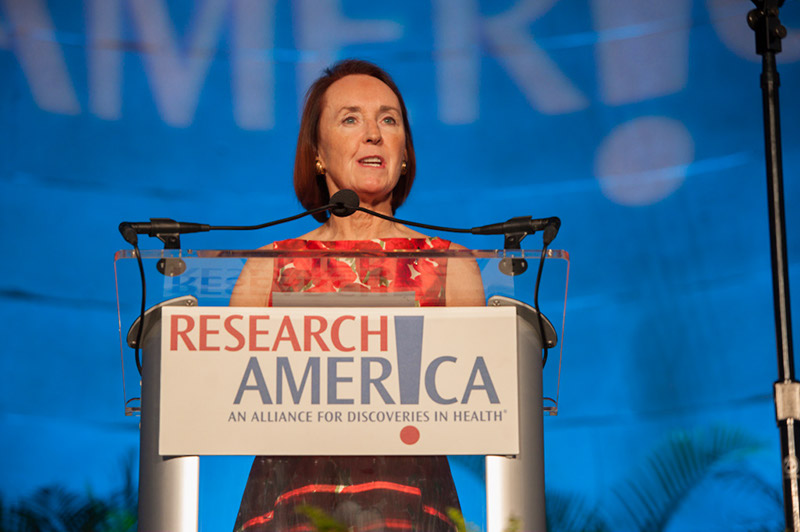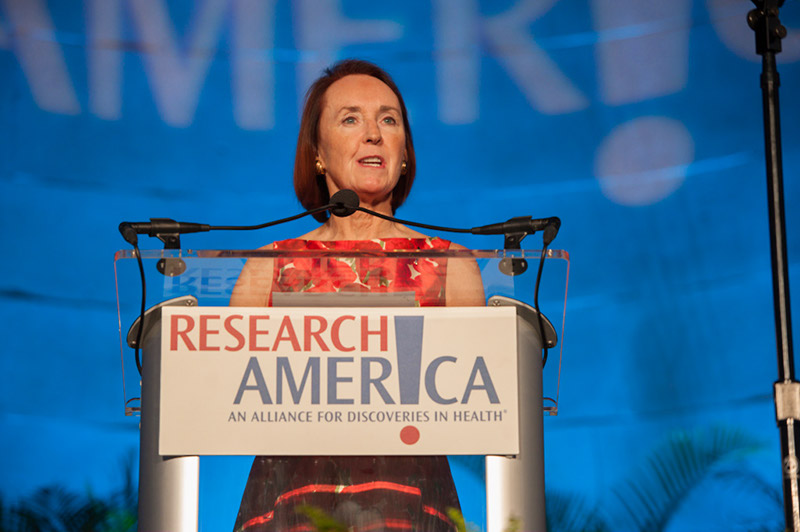Big Money and Small, Working for Research


Dear Research Advocate:
Out this week: new survey data from the Pew Research Center reaffirming that Americans are strongly supportive of federal investments in medical, engineering and basic science research, with overall agreement at the 80% level that these investments ‘pay off.’ Of concern, however, is that voters who identify as strongly conservative are significantly more likely to say that “private investment will ensure that enough scientific progress is made, even without government investment.” All of us in the stakeholder community have more work to do to convey that when the government supports research, all parties — private sector, government and the public — stand to benefit.
Speaking of federal funding, the Senate Labor-HHS bill and report for FY19 have been released. NIH received an additional $2 billion with, among other things, $500 million of that directed to opioid research and $2.34 billion for Alzheimer’s disease research. CDC received $7.9 billion with $475 million directed towards opioid prevention efforts and $5 million for a new initiative to address the rise in infectious disease associated with the epidemic.
AHRQ’s funding of $334 million remains unchanged from FY18. Appropriators explicitly rejected the administration’s proposal to roll AHRQ into NIH, instead opting to fund it as an “independent operating division within the Department [of HHS].” It is encouraging to see consensus in the House and Senate on the importance of the unique, life- and cost-saving role AHRQ plays. Today we sent a letter to the chair and ranking member of the Senate Labor-HHS Subcommittee thanking them for their continued support of these agencies.
And, speaking of AHRQ, please join us for an alliance member meeting, hosted in collaboration with Health IT Now, on Thursday, July 12, featuring AHRQ Director Gopal Khanna discussing agency priorities. If you are interested in attending, either in person or via conference call, please contact Jacqueline ASAP! ([email protected]).
Word has it that the House will vote this month on legislation to repeal the medical device tax, which is in its second, two-year period of suspension. Repealing any tax is a heavy lift, but members of Congress on both sides of the aisle support ending this one. The suspensions have been welcome, and progress in the medical technology arena continues to be transformative, but uncertainty caused by year-to-year suspensions adds risk to investment decisions concerning research and innovation. We need more medical device investment, not less. It’s time to repeal the tax. Use this action alert to make the case.
Kudos to the Lasker Foundation for their work engaging young scientists in public outreach. This year’s essay contest posed the question, “How can social media help build trust in science and the research enterprise?” Contest winner David Hartman, an MD/PhD student at the Medical University of South Carolina, emphasized the value of storytelling. “Cancer survivors [like my father and grandfather] are walking, talking, beloved proof that scientific research saves lives. In a movement united by the hashtag #livingwithscience, we can use social media as a platform to share thousands of touching and convincing cancer survival stories and pictures.”
Telling stories about how research leads to solutions for what ails us is especially important as candidates campaign to serve in the 116th Congress. Research!America, in partnership with the National Science Policy Network, is asking for proposals from graduate-and postdoc-led science policy groups for microgrant funding for bipartisan civic engagement in advance of the 2018 midterm elections. More information on the initiative can be found here. (We are also seeking more funding partners for this future-focused effort! Email Donna McKelvey ([email protected]) if your organization is interested in partnering with us on this initiative.)
Finally, here’s a great story to tell. There is good news this week out of the Democratic Republic of the Congo (DRC), which has been dealing with an Ebola outbreak since May. Although the outbreak is not over, public health officials are signaling that it has been largely contained. You may recall that this was the first time an investigational vaccine was deployed in the field to protect front-line health workers and those at high-risk to come in contact with the virus. In total, 3,268 individuals received the vaccine and, although results on the efficacy of the vaccine in this instance are forthcoming, its development and implementation speaks broadly to the role of both public and private sector research in protecting public health on both a national and international level.
Sincerely,
Mary Woolley




